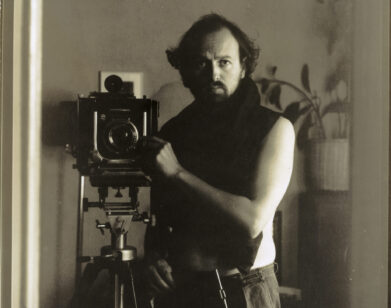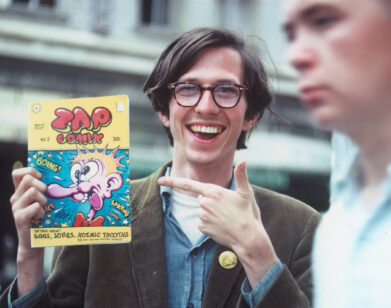Does George Saunders deserve his spot on the Man Booker shortlist?
This morning, the shortlist for the 2017 Man Booker prize was announced, featuring author George Saunders—arguably one of his generation’s best and most beloved writers—alongside lesser-knowns Fiona Mozley and Emily Fridlund. Saunders is already celebrated for his short stories and essays, but Lincoln in the Bardo—published this past February—was his first foray into the realm of novels. Below, two Interview editors debate the merits of Saunders’s nomination.
MATT MULLEN, FOR: I loved Lincoln in the Bardo. Saunders’s previous books set the bar high for me—I was pretty much expecting to be wowed by every word on the page, and for a certain threshold of weirdness to be danced across. Saunders delivered. In Lincoln, he created a world that was, even by his standards, totally weird and brilliant. Yes, at times the narrative was convoluted and a little unexplainable, but it’s about ghosts living in a graveyard in the 19th century, talking about heaven and hell and deliverance and possession. There is no way for that story to be delivered in a neat and tidy package. Luckily, Saunders doesn’t care much for realism. It’s better to just appreciate the story’s historical sweep, its orchestral cast of voices, and all the really, really funny parts. It’s a novel as only he could write it. It haunted me for weeks afterwards.
JANE GAYDUK, AGAINST: While I do self-identify as a George Saunders superfan, Lincoln in the Bardo wasn’t quite right for me. Perhaps most difficult to cope with was the lack of a visceral, empathetic reaction that the writer’s stories so genuinely inspire because, while the major protagonists did have that flawed, vaguely pathetic Saundersian quality about them, the stakes of their struggle seemed rather low. They could have chosen the “matter-lightblooming phenomenon” at will and their refusal to accept death and transition to the other side was mostly without tangible consequence, save for the young Willy Lincoln—he had it the worst. It’s a rich topic, the acceptance of death, and certainly uniquely handled in Lincoln, but I wanted more.
I also felt a bit cheated by the experimental format. Historical blurbs with citations—some were real excerpts, some not—interspersed throughout the chapters detracted from the narrative flow. They were funny, but often superfluous: the writing real estate could have been used differently. It was a genuinely nice read; however, I did not experience the usual matter-lightblooming phenomenon that comes with a Saunders story.







